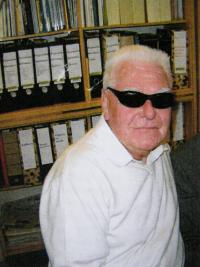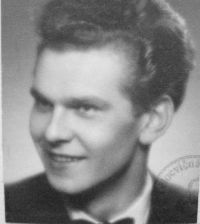The communists suppressed the Czech nation, they frightened them away In my case they also succeeded

Stáhnout obrázek
Jiří Vrba was born April 30th 1932 in Pivín in the Prostějov region. His father Bohumil Vrba was farmer and his farm was put under state control in 1950. Since his youth he was an avid athlete - he played handball and competed in cycling. In 1946, he founded a boys´ club „Fast Arrows“ and until 1946 he was a member of Sokol. In the Pivín Sokol sport club he met the Švéda brothers - Václav, Zdeněk and Vratislav, whose father was the leader of the local Sokol. The eldest, Václav Švéda, joined the Mašín brothers in their resistance activities in the 1950s; however, during their escape to the west he was shot in Germany and after the trial in May 1955 executed in Prague in the Pankrác prison. Jiří Vrba was investigated by the StB (State Police) in relation to this case in September 1953 while he was a student of the Technical University in Brno. After an unsuccessful daily interrogation in the Olomouc prison, he was placed in a cell with a provocateur, but not even this man could move Jiří Vrba to share some information about Václav Švéda. The StB thus had to release him. As an active Sokol member, he participated in the 11th all-Sokol meeting in 1948, part of which was also an open demonstration against the communist regime. As his personal example, he highly esteemed the postwar minister of foreign affairs Jan Masaryk, who died under unexplained circumstances on March 10th 1948. Jiří‘s story clearly shows the prevailing atmosphere in schools and among alleged friends. In the presence of one of his classmates, Jiří Vrba stated that Jan Masaryk‘s death was a murder, and he was then tried for that. Due to his young age of 16, he was pardoned in June 1948 when Klement Gottwald took the presidential office. After completing his studies he worked in Ingstav Brno as a civil engineer, from 1975 till his retirement he worked for the Research institute on Vegetables in Olomouc. He specialized in irrigation systems, when retired he worked in projecting small hydraulic power plants. Jiří Vrba died on 24 May 2019.

